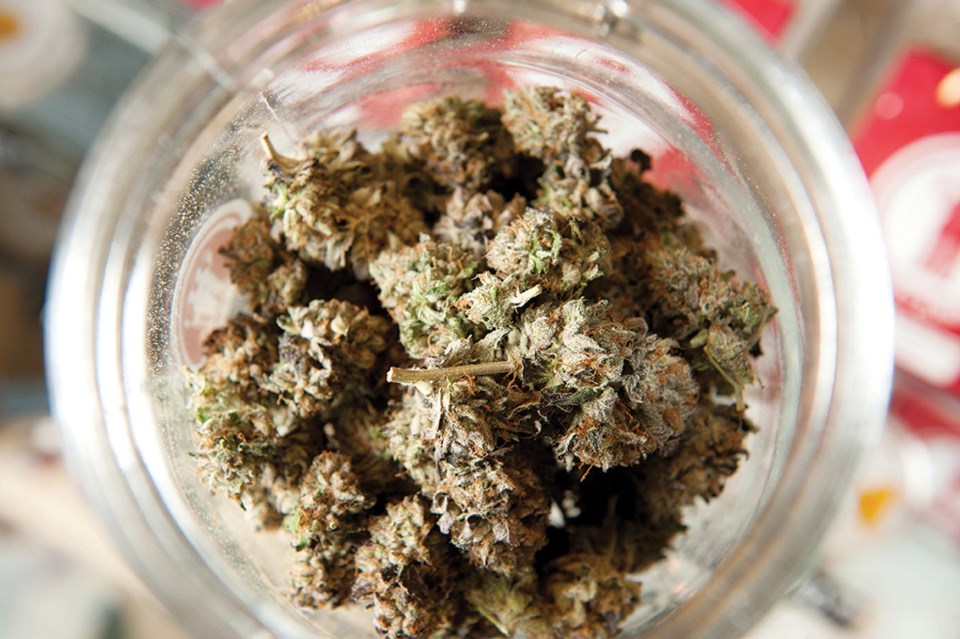They are none too pleased.
Aspects of the cannabis legislation introduced by the federal government last week are not going over well with some locals involved in the weed industry.
On April 13, the Government of Canada tabled the Cannabis Act, which paves the way for the legalization of marijuana consumption by adults before July of 2018.
Should the act become law, adults would be able to possess, buy and share up to 30 grams of cannabis derived from a provincially-licensed retailer, make food and drinks from cannabis for personal use and grow up to four pot plants.
But the legislation also includes criminal penalties that some locals characterize as extreme. In particular, the proposed legislation creates two new criminal offences that could mean 14 years in prison for distributing marijuana to a person under 18 years old or using a youth to commit a cannabis-related offence.
Those behind the proposed penalties argue that tough legislation is needed to prevent and combat pot use by minors.
“From experience I know that the use of cannabis among young people is among the highest in the world, and I also believe that we have to do a better job of protecting our kids,” said parliamentary secretary Bill Blair at the press conference to announce the proposed legislation. Blair also stressed the proposed legislation aims to reduce organized crime through restricted legalization of weed.
But Squamish’s Bryan Raiser, owner of marijuana dispensary 99 North Medical Cannabis Dispensary on Second Avenue, which opened in February of 2015, said he was disappointed at the punitive approach.
“I was hoping the proposed legislation would take a fact-based approach free of reefer madness hysteria. Sadly, that is not the case with fines of 14 years in prison if you give someone 17-years-old cannabis,” he said. “If you give them over-proof alcohol that could kill them you only get a fine.”
Raiser also questioned what he sees as the legislation’s arbitrary limits on the amount of cannabis allowed to be grown and sold.
Chad Jackett, co-owner of local dispensary Grass Roots Medicinal, echoed Raiser’s criticisms and noted sexual assault garners a maximum 10 years in prison, while under the proposed legislation a dispensary owner who inadvertently sold pot to a 17-year-old could face a much harsher sentence.
“Where is the morality of the law makers of this country?” Jackett questioned. Jackett, who is also president of the Cannabis Growers of Canada, added that while no reputable dispensary wants to sell marijuana to a minor, some parents may want to seek the drug for their child because of the plant’s medicinal properties. Cannabis has shown promise in helping to treat severe epilepsy, for example.
“What if there is a situation where a parent has a child that is really sick and they can’t get a doctor to actually prescribe for this medicine, because there is a lot of them that won’t,” he said. Those parents may face lengthy prison terms for accessing cannabis to help their ailing child, he said.
Jackett is also troubled by the proposed legislation’s allowance for roadside saliva testing by police in order to detect drivers who they believe may he high on weed. Jackett argues THC, the chemical in cannabis that causes the intoxicating effects, lingers in the body and its impact varies person to person. He said a standard roadside sobriety test should be enough to detect a high driver.
“It is not so cut and dry to say you have this amount in your system, you are going to jail for 10 years. It should never be that, in any country,” he said.
Another criticism of the legislation is that it ignores small cannabis producers in favour of a few larger, corporate producers.
“When they talk about the need to restrict and highly regulate the supply what that to me sounds like is monopoly building,” said Ian Dawkins of the Cannabis Commerce Association of Canada, which is billed as Canada's largest trade association for cannabis-related businesses.
Dawkins said that the selected licenced producers won’t be able to meet the demand and so the black marketing of cannabis will continue even after the supposed legalization.
“They have not fundamentally solved the supply shortage. They are not racing to address it and they are continuing to use threats of legal violence, police and enforcement,” he said.
“What I heard [in the government announcement] is the meanest and most reluctant press conference announcing you are fulfilling a campaign promise I have ever seen.”
Jackett said Cannabis Growers of Canada is going to put up a fight against the new legislation, including possible legal action.
“We are going to get energy behind us and make sure we have a free and fair marketplace for cannabis in this country,” he said.



